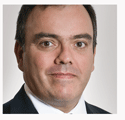Polish market generating growth – Raposo Bernardo
Opportunities exist in the Polish real estate and finance sectors, while there is also growth further afield in Africa and Latin America – but firms must stay focused
Poland is a dynamic market that is generating a lot of competition among law firms in a range of sectors, according to Nelson Raposo Bernardo, managing partner of Raposo Bernardo.
He adds that there are many opportunities to advise Polish companies – or represent foreign companies operating in Poland – in sectors including real estate, finance, investment funds, and infrastructure.
In addition, there are also opportunities in the renewable energy, professional training, distribution and consumption sectors, according to Raposo.
“We have had an office in Poland since 2009, and we have registered growth across all of these five years,” he says. “This is a very dynamic market, with enough maturity, where all the major players from around the world are located.”
Raposo also highlights significant opportunities on other continents, including oil and gas in Africa, as well as construction and infrastructure in Latin America and Asia.
However, though law firms may spot opportunities around the world, Raposo says it is important that they do not lose their focus.
“The most important challenge is not scattering, keeping focused and maintaining profitability,” Raposo says.
“Firms in multiple markets that develop legal work and projects always have a great temptation to try to cover everything – but this is not possible because you will miss human resources and capacity.”
Raposo adds: “The result can be difficult to manage because it will lead to loss of focus and reduced profitability.” Focusing on what constitutes added value and investing to achieve this is important, he says.
Raposo says his firm has a policy of doing local business “according to the local culture”. He adds: “We do not force previously defined models, we always try to build teams with local lawyers, incorporating their working models and their culture – we must stress this is the most efficient but also the most difficult adjustment.”












